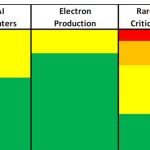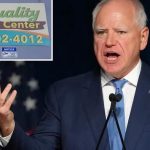![]() A new study from the Tax Foundation suggests that Vice President Kamala Harris’ tax plan could result in significant job losses, hinder economic growth, and complicate the U.S. tax code, the Daily Caller reported.
A new study from the Tax Foundation suggests that Vice President Kamala Harris’ tax plan could result in significant job losses, hinder economic growth, and complicate the U.S. tax code, the Daily Caller reported.
Vice President Kamala Harris’ proposed tax plan could eliminate nearly 800,000 full-time jobs and stifle economic growth, according to a study released Tuesday by the Tax Foundation.
The plan, which includes raising corporate tax rates and imposing taxes on unrealized capital gains, would significantly impact employment, wages, and gross domestic product in the long term, the study found.
The report estimates that Harris’ plan would cut approximately 786,000 full-time jobs and reduce the U.S. GDP by 2%. Wages could decline by 1.2%.
In contrast, former President Donald Trump’s economic proposals, including a 60% tariff on China, would result in about 387,000 lost jobs but slightly increase wages by 0.6%, according to the same study.
“We find the [Harris] tax policies would raise top tax rates on corporate and individual income to among the highest in the developed world, slowing economic growth and reducing competitiveness,” the study’s authors — William McBride, Erica York, Garret Watson, and Alex Muresianu — wrote.
They also warned that Harris’ tax credits and carve-outs would add complexity to the tax system, ultimately leading to inefficiencies and higher costs in sectors like housing.
One of the most controversial aspects of Harris’ plan is a proposed increase in the corporate tax rate from 21% to 28%, which the study suggests could disourage investment and inhibit business growth. The Tax Foundation believes this change would make many business projects unprofitable after taxes, further slowing the economy.
In addition, Harris has proposed a tax on unrealized capital gains, which would tax the increase in the value of assets before they are sold. Critics argue that this could discourage investment in the stock market, a critical driver of innovation and economic growth.
According to a report from the Cato Institute, taxing unrealized gains could prompt investors to shift their assets overseas, following a pattern seen in France after a similar wealth tax drove away capital and high-net-worth individuals.
On the other side of the political spectrum, Trump aims to extend the 2017 Tax Cuts and Jobs Act, which lowered the corporate tax rate from 35% to 21%. Trump has also proposed reducing the rate to 15% for some businesses. However, the study indicates that Trump’s plans to impose a 60% tariff on China and a 10% universal tariff would undermine much of the growth resulting from these tax cuts.
Both Harris’ and Trump’s proposals have serious implications for the federal deficit. According to the Tax Foundation, Harris’ plan could increase the deficit by as much as $2.6 trillion, while Trump’s could add $1.3 trillion. The federal debt currently stands at approximately $35.35 trillion, raising concerns about the sustainability of either candidate’s economic strategies.
Harris’ “fiscal policy stance at this point leaves a large void regarding how she might deal with the already unprecedented, dangerous, and unsustainable federal debt trajectory,” the report concluded.











